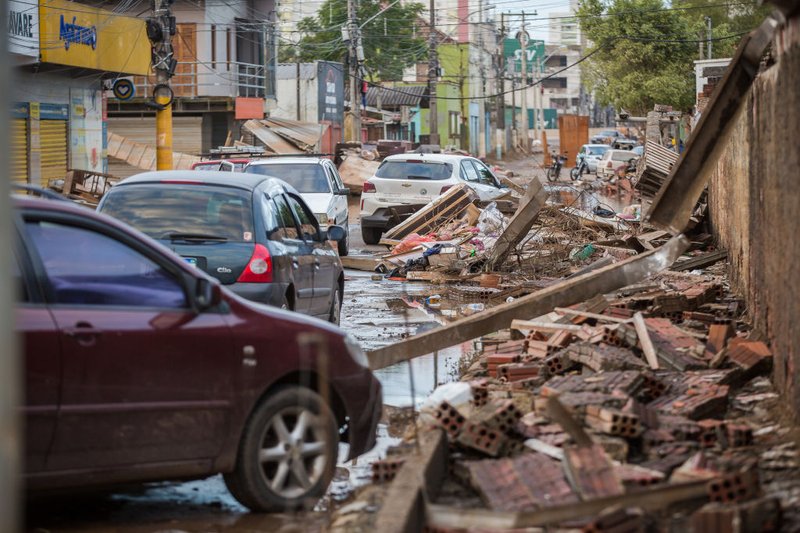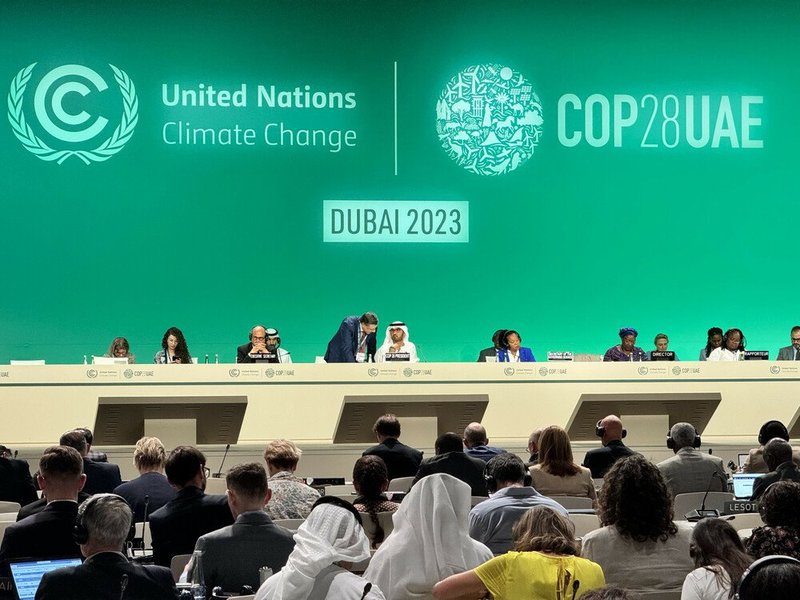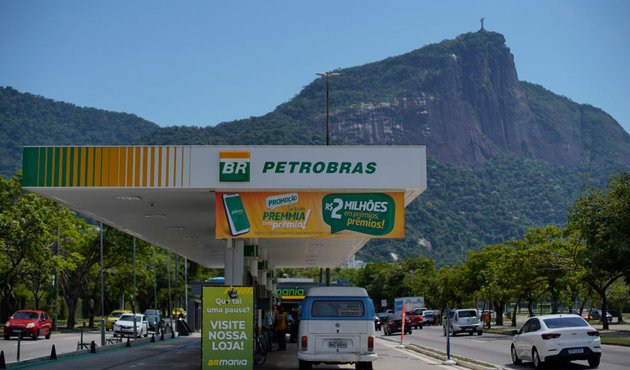Brazil knows the devastation climate change is causing better than most, yet its own state oil company's actions could stand in the way of progress at COP30
Imagine earning the responsibility of solving the biggest problem the world has ever faced. Imagine the stakes, the pressure. The opportunity.
Now imagine that while undertaking the toughest task in the world, you were told that the single greatest cause of the problem was going to get significantly worse – partly due to actions being taken under your own roof.
This is the situation facing Brazil, which in a few months will host the COP30 climate summit. It will do so with an internationally agreed mandate to seek ways to limit global temperature rises to survivable levels (1.5°C above pre-industrial levels, as stated in the Paris Agreement).
And it will do so while its state energy company, Petrobras, has the potential to expand its oil production faster than nearly any other oil or gas producer on Earth, according to data modelling undertaken by Global Witness.

Rise in global temperatures has supercharged extreme weather events. Pedro H. Tesch / Getty Images
The growing urgency of a fossil fuel-free future
We have known for decades that fossil fuels are by far the largest contributor to global heating. When they are burned for energy, oil, gas and coal emit carbon dioxide and other greenhouse gases, which trap the sun’s heat in Earth’s atmosphere.
This additional heat energy has already seen global temperatures rise by 1.4°C in a little over two centuries. It supercharges extreme storms, floods and drought. And it makes everything more perilous, from spiralling food prices to health impacts spread across society.
Thirty years ago, governments came together in a first-ever attempt to limit these increasing greenhouse gas emissions. Countries agreed to work constantly on ways to reduce humanity’s impact on the natural world, including through annual international conferences, known as COPs, where binding decisions would be made.
In 2015, the landmark Paris Agreement laid out a specific set of temperature goals to work towards, committing to limiting warming to “well below” 2°C. It also included a safer cap of 1.5°C. Although hailed as a breakthrough, the accord focused only on emissions, rather than their source, fossil fuels. In fact, the entire Paris Agreement text never mentions them.
Astonishingly, it took a further seven years for the words “fossil fuels” to appear in a COP decision text. To much fanfare, nations agreed at COP28 in Dubai on the need to “transition away from fossil fuels in energy systems.”
It was no less than what scientists had pleaded for for years. By the time countries acknowledged the need to reduce their reliance on oil and gas, the UN Environment Programme had already calculated that emissions would need to fall by 42% by 2030 to keep the 1.5°C goal within reach.
Petrobras’s contradictory oil expansion goals
Such a drop in emissions is physically impossible without a corresponding drop in their main source: fossil fuels.
This is where Petrobras comes in. The state-owned company, founded in 1953, has for decades been a major fossil fuel producer, churning out much more oil each year than household names such as Shell and BP.
But it is what it could do next that most risks undermining any diplomatic breakthrough at COP30.
According to Global Witness analysis, Petrobras is positioned to increase its oil production by almost a third (32%) between 2024 and 2030. That gives it the potential to be the second most aggressive expander of any major oil producer globally.
However such an expansion in outputs would stand in total opposition to the emissions reductions that we know are needed to stave off climate change’s worst impacts.
By 2050 – the date by which the entire global economy must reach net-zero emissions – Petrobras has the potential on current trends to produce more than 18 billion barrels of oil. Along with a significant volume of anticipated gas production, this means Petrobras’ CO2 emissions from its products will likely come close to 8 billion tonnes.
That’s almost the same as the combined annual emissions of the US and EU.
The International Energy Agency and the UN’s Intergovernmental Panel on Climate Change both say that there is already more than enough oil and gas in production to blow past 1.5°C. This means that no new oil and gas fields are compatible with the Paris Agreement’s lodestar.
Despite this growing scientific consensus, companies are still investing billions in new oil and gas projects, and Petrobras is no different.
Global Witness analysis suggests Petrobras is likely to spend a staggering $230 billion on new fossil fuel projects by mid-century.
Once again, fossil fuel ambitions stand in direct contradiction to the climate action the world needs to see at COP30.
Global Witness investigations have previously uncovered oil and gas dealmaking at the heart of COP – last year, COP29’s CEO agreed to facilitate new oil deals in an undercover investigation, while in 2023 the United Arab Emirates’ state oil company, ADNOC, accrued $100 billion of oil and gas deals in the country’s year as COP28 host.
Petrobras may not have a presence on the COP30 organising committee, but its expansion could still undermine the climate summit.
How is Brazil supposed to lobby all countries to drop their emissions while the company it controls plans to ramp up production of the very fossil fuels that are their cause?

Nations agreed at COP28 in Dubai on the need to transition away from fossil fuels. Lai Yun / Global Witness
Brazil’s golden opportunity at COP30
Brazil is both a top 10 producer and consumer of fossil fuels. But in terms of limiting the use of fossil fuels for energy, Brazil is well ahead of the global average, with as much as 90% of its domestic power coming from low-carbon sources.
It exports several times the amount of fossil fuels that it imports, with China and the US purchasing the lion’s share.
Oil and petroleum products are Brazil’s largest export, generating more than $50 billion in 2023 alone.
The emissions from these products, even if they are not technically counted as Brazil’s contribution to the climate problem, still accelerate global heating. And Brazil is already experiencing outsized impacts from climate change, not least in terms of changing weather patterns' impacts on the Amazon rainforest, its unparalleled biodiversity and its Indigenous and local communities.
In fact, one recent study suggested that climate change could mean Brazil loses 22% of its GDP by 2050. This would inevitably lead to a worsening of the existing wealth, security and health inequalities that exist in Brazilian society today.
Brazil has a unique opportunity at COP30 to lead by example to convince countries to make their grids greener and more sustainable, safeguarding the riches of their natural environments and protecting and empowering communities to work in harmony with the world around them.
The government and people deserve better than to let the expansion plans of one single company sully its time in the global climate spotlight.
Petrobras did not reply to Global Witness' invitation to comment on the projections in this report.



